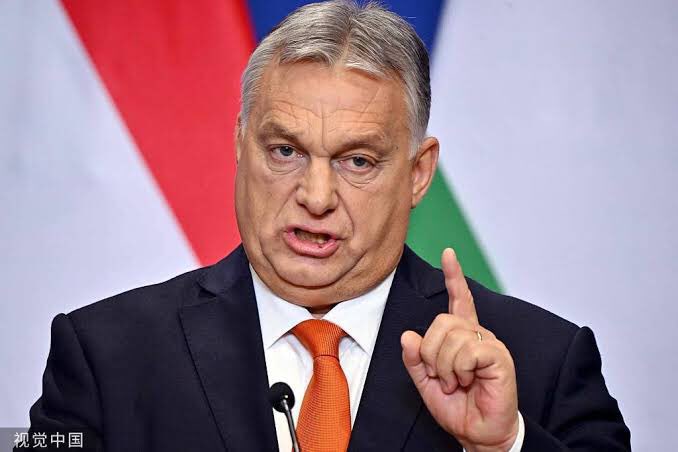Hungarian Prime Minister Viktor Orbán has pursued a foreign and domestic policy agenda that increasingly diverges from the European Union’s core values and strategic goals. His deepening alliance with Russian President Vladimir Putin—despite Russia’s war in Ukraine and international isolation—has raised alarm across Europe. Orbán’s motivations stem from a mix of authoritarian preservation, nationalist rhetoric, and political pragmatism aimed at consolidating power. His political base remains receptive to anti-EU, anti-immigrant, and pro-sovereignty messaging.
I. Orbán’s Divergence from EU Norms
Since returning to power in 2010, Viktor Orbán has transformed Hungary into an “illiberal democracy,” systematically undermining the rule of law, press freedom, judicial independence, and minority rights—foundational values enshrined in the EU treaties.
- Erosion of Democratic Institutions: Orbán has centralized media ownership, restricted NGOs, politicized the judiciary, and changed electoral laws to entrench Fidesz rule.
- Rule of Law Clashes with Brussels: Hungary remains under Article 7 proceedings, and it has blocked multiple EU-level foreign policy decisions critical of Russia, Belarus, and China.
- Refusal to Aid Ukraine: Budapest has refused to supply weapons to Ukraine, blocked EU military aid packages, and delayed sanctions against Russia.
II. Why Orbán Aligns with Putin
Despite Hungary’s EU and NATO membership, Orbán has repeatedly positioned himself as a geopolitical outlier—willing to engage Moscow even after the 2022 invasion of Ukraine. This alignment is based on both ideological and pragmatic considerations:
- Authoritarian Solidarity: Orbán and Putin share a disdain for liberal democratic institutions and multilateral oversight. Both frame their rule as a defense of national sovereignty against Western “decadence.”
- Energy Dependency: Hungary is heavily reliant on Russian gas, oil, and nuclear technology (via the Paks II nuclear plant deal). Orbán uses this dependency as political leverage while resisting diversification.
- Electoral Messaging: Orbán presents himself as a defender of “Hungarian interests” against EU pressure, appealing to nationalist voters skeptical of Brussels and Western interventionism.
- Disruption Strategy: By aligning with Russia, Orbán acts as a spoiler within the EU, slowing sanctions, weakening cohesion, and gaining leverage over Brussels in financial negotiations.
III. Orbán’s Political Base
Orbán’s electorate is a carefully maintained coalition rooted in rural, conservative, older, and religious voters who are highly susceptible to nationalistic and anti-immigrant narratives. Key features:
- Anti-Immigration Identity Politics: The 2015 migration crisis helped Orbán rally his base around ethnic nationalism and anti-Muslim sentiment.
- Media Control and Disinformation: State-controlled media mirrors Russian-style propaganda, often presenting the EU, George Soros, and Western liberalism as threats.
- Economic Populism: Orbán maintains loyalty through subsidies, wage hikes for loyal sectors, and patronage networks at the municipal level.
- Narrative of Sovereignty: He portrays Hungary as a victim of global elites and a moral outpost resisting ideological colonization by the West.
IV. Risks to the European Union
Orbán’s pro-Russian positioning and obstructionist behavior threaten the EU from within:
- Policy Paralysis: Hungary can veto key foreign policy decisions, weakening the EU’s capacity to respond to global crises.
- Erosion of Unity on Russia: By resisting sanctions and supporting Kremlin narratives, Orbán offers Moscow a backdoor into EU deliberations.
- Rule of Law Breakdown: His model inspires other populist leaders in Europe and emboldens anti-EU actors, especially in countries like Slovakia, Serbia, and Italy.
- Institutional Credibility Damage: Orbán’s behavior undermines the EU’s credibility on democracy promotion abroad—especially in Eastern Partnership countries like Moldova, Ukraine, and Georgia.
V. Policy Recommendations
- Reform Voting Mechanisms in EU Foreign Policy: Shift to qualified majority voting to prevent rogue actors like Hungary from blocking consensus on key foreign policy decisions.
- Financial Conditionality: Continue to withhold EU funds tied to rule-of-law violations, while providing direct support to civil society and independent institutions in Hungary.
- Media Counter-Narratives: Expand EU-backed media literacy campaigns and support for independent journalism to counter Fidesz’s propaganda ecosystem.
- Deepen Defense Integration: Strengthen EU and NATO defense structures that bypass Hungarian obstruction, such as regional cooperation frameworks.
- Track Russian Influence Networks: Increase transparency requirements on foreign lobbying and monitor Russian-linked economic ventures within Hungary.
Viktor Orbán represents more than a national anomaly—he is a strategic liability inside the European Union. His alignment with Vladimir Putin, defiance of EU norms, and manipulation of democratic institutions threaten not only Hungarian democracy but the cohesion and credibility of the EU as a whole. Addressing the Orbán problem requires a combination of legal, economic, and political pressure—but above all, strategic clarity about the risks of tolerating authoritarian influence within democratic institutions.
Hungarian Prime Minister Viktor Orban has pursued a foreign and domestic policy agenda that increasingly diverges from the European Union core values and strategic goals.
I. Orbán’s Contradictions with EU Standards and Values
- Democratic Backsliding: Suppression of judicial independence, centralization of media, electoral law manipulation.
- Corruption and Rule-of-Law Breaches: EU investigations and Article 7 proceedings for misuse of funds and systemic corruption.
- Foreign Policy Divergence: Blocking EU sanctions on Russia, refusal to support Ukraine, openness to Chinese investments under Belt and Road.
III. Orbán’s Electorate
- Rural, Conservative Base: Strong support from older, less urbanized populations.
- Nationalist Sentiment: Anti-immigration stance, “protecting Hungarian sovereignty” from Brussels.
- State Media Influence: Government-controlled media pushing pro-Russian narratives and discrediting Western institutions.
- Economic Populism: Strategic subsidies and social benefits for loyal voters, often at the expense of EU cohesion.
IV. How Orbán Can Damage the EU
- Foreign Policy Paralysis: Repeated vetoes on common positions (e.g., sanctions on Russia).
- Legitimization of Russian Narratives: Undermining EU unity on Ukraine by spreading Kremlin-friendly messaging.
- Erosion of Rule-of-Law Standards: Inspiring other populist leaders (in Slovakia, Italy) to follow suit.
- Long-Term Structural Weakening: Threatening enlargement, foreign credibility, and internal solidarity.
Viktor Orbán’s attacks on Ukraine, particularly his accusations that Kyiv is responsible for psychological operations (psyops) targeting Hungary, serve multiple overlapping political and strategic purposes. These claims are not rooted in verifiable intelligence but are instead part of a broader information and influence strategy. Here’s why Orbán pursues this narrative:
1. Deflecting Criticism from His Pro-Russian Stance
Orbán is one of the few EU leaders who openly maintains a working relationship with Vladimir Putin amid Russia’s war in Ukraine. Accusing Ukraine of hostile behavior—such as psychological operations—helps him justify his refusal to support sanctions, arms deliveries, or military aid.
- Framing Hungary as a victim of Ukrainian aggression allows Orbán to appear protective of Hungarian sovereignty.
- Shifting blame helps explain his distancing from NATO and EU consensus without directly aligning with Moscow.
2. Appealing to His Nationalist Electorate
Orbán’s core base is highly nationalistic and suspicious of foreign entanglements. Portraying Ukraine as an aggressor or manipulator reinforces national identity politics.
- Ethnic Hungarian minorities in Western Ukraine (Zakarpattia region) are used by Orbán as a symbol of alleged oppression, allowing him to paint Kyiv as a hostile power.
- Psyops accusations resonate with paranoid, anti-globalist rhetoric pushed by Orbán’s state-aligned media.
3. Undermining EU and NATO Support for Ukraine
By spreading doubt about Ukraine’s behavior—even suggesting that it conducts psyops against an EU member—Orbán contributes to narratives that weaken European unity.
- It serves Russia’s interest by sowing divisions within the West and promoting fatigue or distrust toward Ukraine.
- Orbán acts as a conduit for Russian-style narratives while formally remaining in the Western camp.
4. Preemptively Discrediting Opposition and Civil Society
Allegations of foreign psyops create a pretext to clamp down on dissent, NGOs, and media outlets inside Hungary.
- He can label critics of his Russia policy or his handling of Ukraine as “agents” or “tools” of a foreign campaign.
- This strategy mirrors tactics used by Putin and Erdoğan, where foreign conspiracies are used to justify domestic authoritarian measures.
5. Increasing Bargaining Power with the EU
Orbán often uses provocations—whether about Ukraine, LGBTQ rights, or judicial reforms—as leverage in negotiationswith Brussels.
- Claiming he’s under psychological attack allows him to delay or obstruct EU policy on Ukraine, then demand concessions (e.g., unfreezing EU funds) in exchange for cooperation.
Summary
Orbán’s claims that Ukraine is behind psyops against Hungary are politically expedient rather than credible. They:
- Help justify his pro-Kremlin stance;
- Feed nationalist sentiment;
- Undermine EU and NATO support for Ukraine;
- Enable domestic repression;
- Enhance his leverage within the EU.
This is not about intelligence—it’s about power, narrative control, and authoritarian maneuvering under the guise of national defense.
1. Orbán Undermines NATO—While Trump Claims He Wants NATO to Pay More, Not Collapse
- Orbán is actively weakening NATO from within by opposing military aid to Ukraine, obstructing Sweden’s NATO membership (until recently), and siding with Russia diplomatically.
- Trump may criticize NATO spending, but destroying NATO outright would diminish U.S. global leverage—Orbán’s behavior nudges in that direction.
- A key Trump argument is U.S. strength through deal-making—Orbán makes the U.S. look weak by enabling Putin while still cashing EU and NATO security guarantees.
2. Orbán Is Too Close to Putin—Making Trump Look Soft on Russia
- Orbán’s open admiration for Putin feeds into the narrative that Trump is aligned with authoritarian regimes.
- In a campaign environment where Trump is already accused of being too friendly to Russia, association with Orbán makes it worse.
- Orbán’s ties to Russian intelligence and economic deals expose fissures in the Western alliance that Trump would have to manage or defend politically.
3. Orbán’s Authoritarianism Contradicts Trump’s “America First” Constitutionalism
- Orbán has dismantled Hungary’s independent judiciary, censored media, and rewritten the constitution to entrench power—far more extreme than anything Trump proposes.
- While Trump appeals to populism, he still operates within American democratic institutions—Orbán’s model is openly anti-democratic.
- U.S. swing voters, especially moderates and independents, are wary of foreign autocrats—Orbán’s model scares them, even if Trump praises “strong leadership.”
4. Orbán Weakens U.S. Influence in Eastern Europe
- Hungary’s drift away from Western consensus undermines U.S. influence in NATO’s eastern flank (critical in the context of the Ukraine war).
- Orbán is actively working with China and Russia, both competitors of the U.S., including through Belt and Road investments and Huawei deals.
- Trump’s foreign policy depends on maximizing U.S. leverage globally—Orbán empowers American rivals in a strategically vital region.
5. Orbán Undermines U.S. Messaging on Democracy and Sovereignty
- If Trump wants to criticize “globalist elites” while defending national sovereignty, aligning with Orbán blurs that message—Orbán uses nationalism as a mask for personal power.
- He gives authoritarianism a bad brand, one that damages the credibility of Trump-style populism by association.
6. Orbán Is Unreliable and Transactional—Not a Strategic Ally
- Orbán flips positions for domestic gain (e.g., delaying Swedish NATO approval, then reversing under pressure).
- His loyalty lies only in serving his own power, not in defending shared Western interests.
- Trump needs allies who help execute U.S. goals abroad—Orbán is more likely to cause chaos than support American priorities.
7. Association with Orbán Alienates Key Allies in Europe
- If Trump wants to renegotiate better trade and defense deals with the EU, being seen as close to Orbán provokes France, Germany, and Poland—countries the U.S. must deal with.
Orbán is a toxic figure in Brusselsand risks making Trump look aligned with Europe’s most distrusted leader.

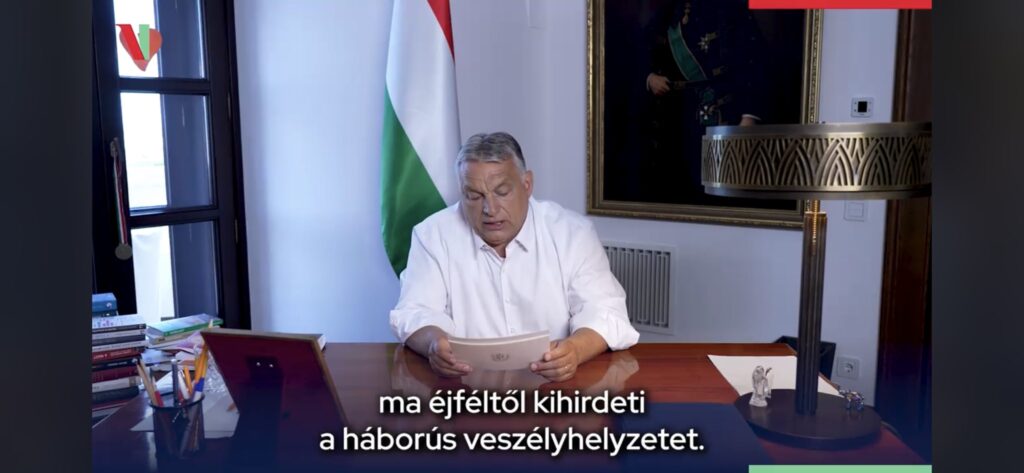
More on this story: Hungary’s Balancing Act: Strategic Risks of Budapest’s Covert Ties with Russia
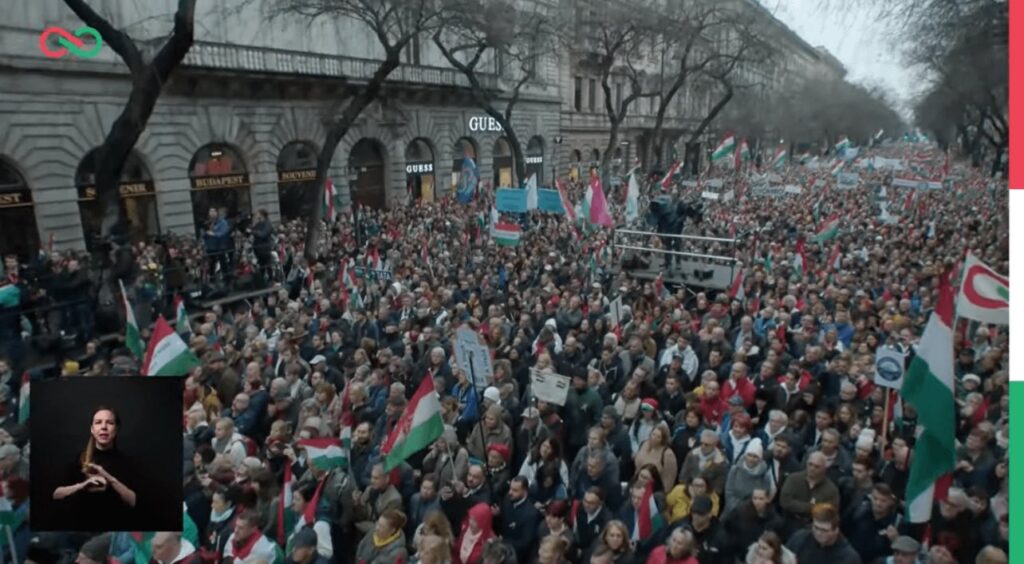
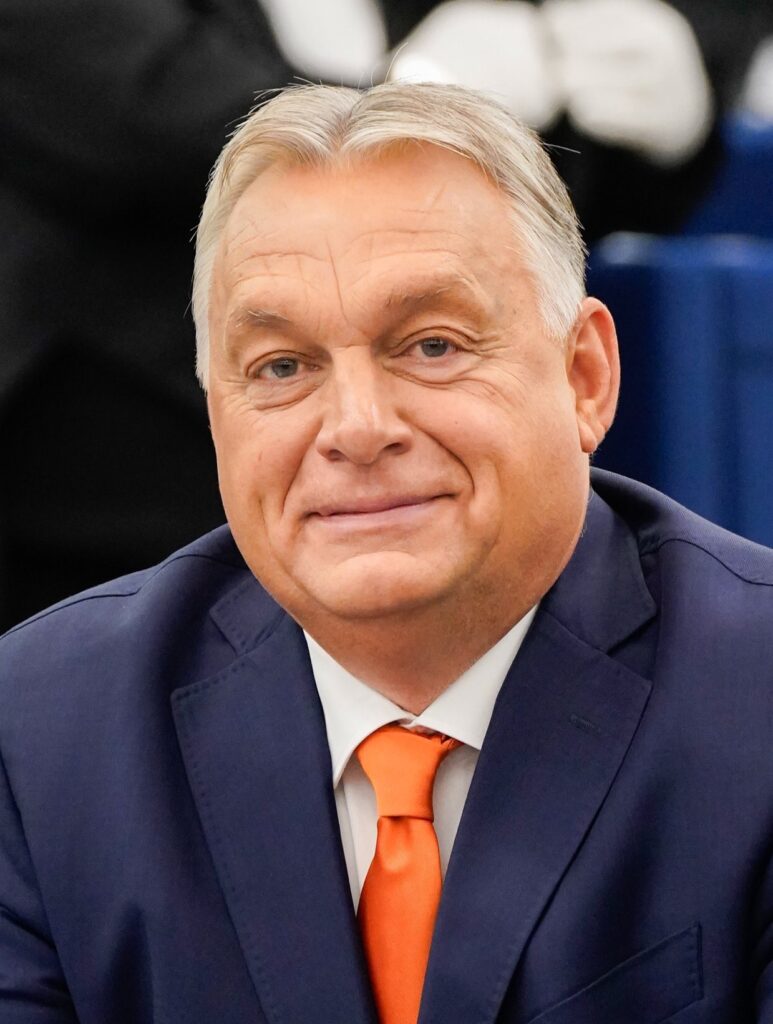
More on this story: Hungary: Trojan Horse in Russia’s Proxy War Against Europe

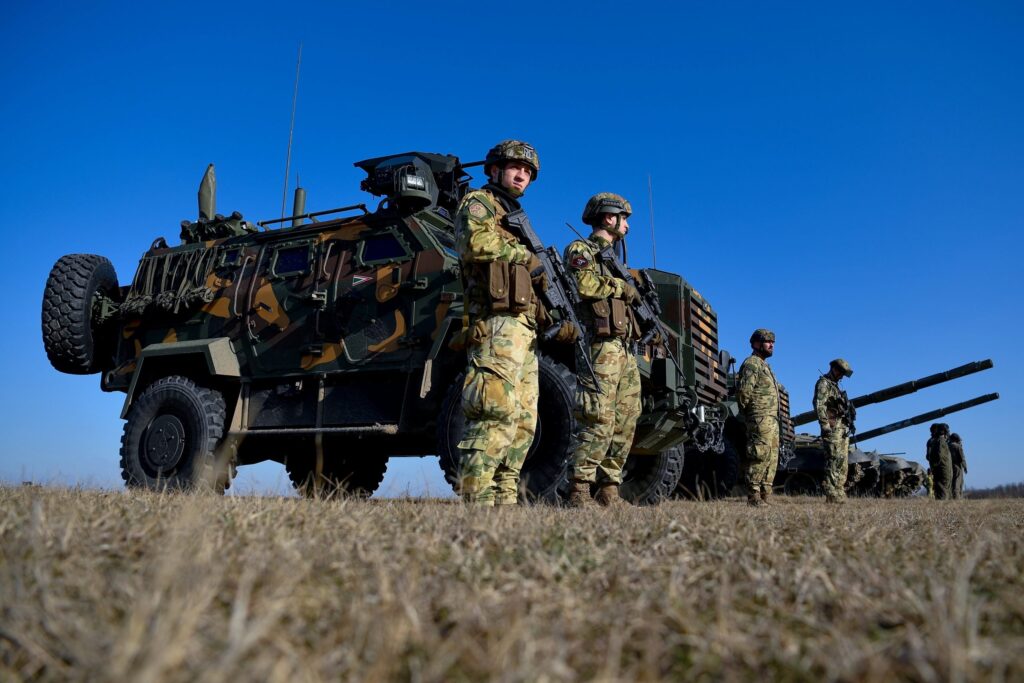
More on this story: Peacekeeper or Invader? Hungarian Forces and the Future of Western Ukraine


